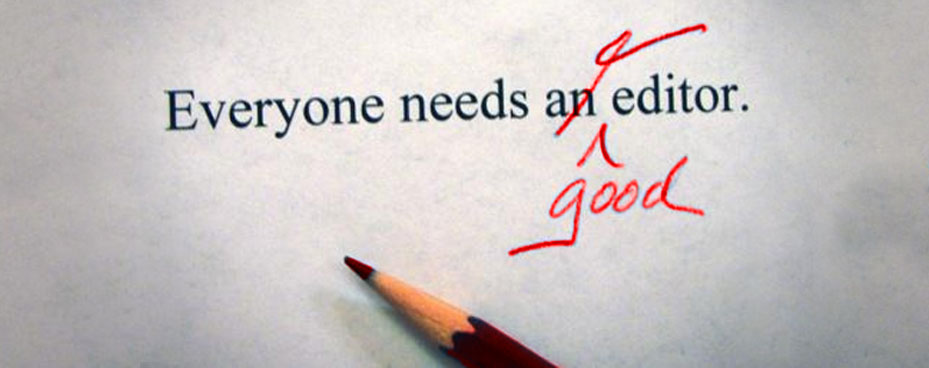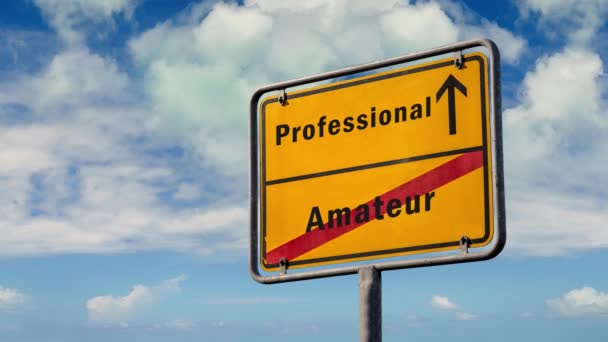Whether you are a self-published indie author or preparing to query agents and pursue traditional publication, hiring a good freelance editor is a worthwhile investment.

Why You Need an Editor
Editor Jessica Hatch, said it this way: “… literary agents and indie readers alike have stated and demonstrated their tastes for polished, professional-level content… so whether you want to get an agent or enjoy a solid indie fan base that reliably gives your books five stars and preorders new ones, you need to edit your manuscript.”
How to Find a Good Editor
Editors vary widely in the type of writing they work on, the scope of services they provide, and how much they charge.
I spent months researching how to find and hire a freelance editor to provide developmental editing for the first book in my YA fantasy series, and here are the key takeaways I learned about finding a good one.
Tip #1 – Start Looking Early
The number of people writing novels exploded during the pandemic so freelance editors are extremely busy these days. Experienced editors are booked up to 3 months in advance, so it could be more than 4 months from the time you start looking for an editor until you actually get some feedback.
I reviewed over 100 editor profiles on the Editorial Freelancers Association website, studied the websites of the top dozen, and had consultation calls with 6.
Out of 100 potential editors, I ended up with a short-list of 3. Each of the 3 finalists was booked 4 or more months in advance.

Tip #2 – Find a Real Professional
Anyone with a Venmo account and a website can call themselves an editor, but you need someone who knows what they’re doing AND has real industry experience. You’re not a hack author if you are willing to invest an in editor, so you don’t want to end up with a hack editor whose simply learning what they should already know how to do on your dime.
My primary resource was the Editorial Freelancers Association website where editors post bios of themselves and the editing services they provide. You can search their extensive online directory of editors for free and filter by all sorts of criteria. (I sorted by genre and the type of editing I needed – see Tip #3 below). You can also post your particular editing job on a jobs board.
Reedsy is another online resource you can use to find editors, but they charge a percentage of the money you end up paying the editor.
Ask your writing network for recommendations – word of mouth is still the best. If you’re like me and don’t have a large writing network yet, then use online resources to get yourself started.

Tip #3 – Know What Type of Editing You Need
There are different types of editing services available depending on which stage of the writing process you are at, and not all editors provide all types of editing services.
This is a good thing because you want a specialist who knows the conventions and what is expected in your particular area of writing at the specific stage you’re at with your work.
Manuscript Development (aka Developmental Editing)
If you are like me when I started looking you may have outlines, summaries, character arcs, and other developmental materials but not a complete manuscript yet. At this stage you may want an honest and professional assessment about whether or not the blueprints for your work will result in a proper, coherent story once executed on the page. If so, you’re looking for ‘developmental editing’.
To my surprise, I found few editors willing to do this high-level type of work and even fewer will accept a partial manuscript and outlines for review. This type of editing is usually collaborative, takes place over a time period of months, involves multiple meetings, and is geared towards helping you as the author finish a first draft of your manuscript. ‘Developmental editing’ is often paired with ‘author coaching’ as a supportive editor can also advise how to break down the monumental task of writing a complete coherent manuscript into manageable pieces.
Manuscript Review/Reader Report
If you have a complete manuscript and want a professional’s quick take on it, then you need ‘manuscript review’ or a ‘reader report’. An editor will read your manuscript (either full or partial) and provide a short report on their response as a reader, the story’s strengths, weaknesses, and if they think it’s ready to submit to agents.
Substantive Editing
If you have a complete draft of a manuscript and want a stress-test the structural foundation, then you need ‘substantive editing’. An editor will read your manuscript to review the fundamental elements of plot, theme, character arc, and structure and advise if what’s actually on the page makes sense to readers other than you.
This is key because as the author you automatically fill in the blanks in your own story. But a reader only has access to what’s on the page to guide them. In a ‘substantive edit’, an editor can help ensure your story is actually readable by a person who isn’t already familiar with your story and doesn’t have all the knowledge that you have as the author.
Copy/Line Editing
This is what most people think of when they think ‘editing’. Copyediting is the line by line review to correct spelling, grammar, consistency, proper citation, chronology, etc.
You may think you’re good at catching your own mistakes, but a second pair of professional eyes will certainly see things that you missed.
This type of editing is the primary value of an editor for self-published authors. For traditionally published authors, this service is usually provided by the in-house editorial staff of a publishing house, although it may outsourced to freelance editors.
Proofreading
This is the final polish before the manuscript goes to formatting for print. It includes the final round of spelling, punctuation, and grammar edits, as well as consistency of page design.

Tip #4 – Find an Expert in Your Genre
Once you know what type of editing you need, the next step is to find an editor who specializes in your genre and who also reads widely in it.
You can get a sense of the editor’s taste by looking at their website and their favorite books. Make sure they have expertise in the genre you’re writing in by reviewing their list of authors they have worked with in the past. If an editor doesn’t have a list of past clients they can share, then move on; they don’t have sufficient experience.
Writing conventions vary widely by genre so you need an editor who is an expert in your genre so they can provide relevant feedback. What passes for an ‘airtight plot’ in a middle grade detective story doesn’t compare to what publishers and readers expect of an adult mystery novel. You want an editor who is up to date on all the current trends in your genre and who has read both recent successes and flops, especially if you are looking to traditionally publish.
Don’t take the editor’s word that they are a specialist. Ask them what books they have read lately and which they thought of them. I had calls with editors who claimed to be YA fantasy specialists on their websites and yet when pressed, admitted that they had not read some of the genre’s best-selling books. Instead they had seen the mini-series and called it a day.
You want an editor who is as excited about your work as you are. If they don’t sound enthusiastic about your or your project, then find someone else… really. Writing is hard work and editors often double as writing coaches – they can provide vital guidance and encouragement, which is especially valuable for first-time authors.

Tip#5 – Prepare a Budget
Most editors will list their rates on their websites, offer a free 10 minute consult call to discuss their availability and see if you and your work are a good match for them, and provide an estimate based on either your project and/or their hourly rate(s). If they don’t offer those services on their website, then send them an email and ask if they are willing to.
Most hourly rates charged by the editors I contacted fell within the median range posted by EFA, but several were higher, and some were much higher. I recommend using the EFA median rates as a minimum when preparing your budget.
I chose editors with substantial industry experience, who were currently working with traditionally published authors, who had edited books in my genre before, and could talk shop about the most recent trends and books in my genre, YA fantasy. This criteria narrowed the field of 100 potential editors down very quickly.
I got quotes from 6 editors in 2021 and their hourly rates ranged from $60 to $95 per hour for developmental/substantive editing of fiction, which is higher than EFA’s median rate.
For a 100,000 word fiction novel, budget at least $1,000 for an experienced editor to provide 10-15 pages of developmental or substantive editing feedback.
Some editors may offer a preview of their work (e.g. 1 – 2 pages of high-level feedback) at their hourly rates if you want to get a sense of their work before signing up for a bigger commitment. This is called a ‘sample edit’.

Tip#6 – Keep Writing While You Wait
Be prepared to sign a contract and pay a deposit to hold your place on your editor’s calendar.
Once you’re on your editor’s schedule, they will provide a submission due date by which time you need to send them all the materials you want them to review. The submission deadline is usually when the editor will begin their work on your project, and they usually give themselves at least a month to review and write up their feedback.
For a full manuscript review or developmental editing, you may have to wait up to 3 months after you hire an editor until the submission deadline. Then you will wait 1 month more while the editor does their work.
Keep writing, revising, and self-editing full-blast in the meantime. Don’t wait around for your editor to become available.
If you don’t have a complete manuscript yet, then keep writing full-speed. All the editors I contacted said they wanted to read as much of my manuscript as possible, so I kept writing during the 3 months I waited for my submission deadline.
If you already have a complete manuscript, then review, revise, and self-edit it while you wait. To make the most of your editor’s time – and the money you’re paying them – submit the most polished manuscript and materials you possibly can. Your editor will be grateful for the extra effort on your part, and it will free up their time to focus on things that you weren’t able to see or solve on your own.
If your partial manuscript increases substantially in word count (as mine did), then contact your editor in advance of your submission deadline and ask them to adjust their estimate to accommodate reading your longer manuscript. Most editors will estimate the time it will take them to read the additional word count, apply their standard hourly rate, and add it to your original quote.

Good luck and keep writing!
Let me know your editing experiences and advice in the comments below.
Greetings from Idaho! I’m bored to tears at work so I
decided to browse your blog on my iphone during lunch break.
I enjoy the information you present here and can’t wait to take a look when I get
home. I’m surprised at how quick your blog
loaded on my phone .. I’m not even using
WIFI, just 3G .. Anyhow, fantastic blog!
Hi Dionne, thanks very much for your message and I’m thrilled to hear that you’re enjoying this post. Happy reading! 🙂